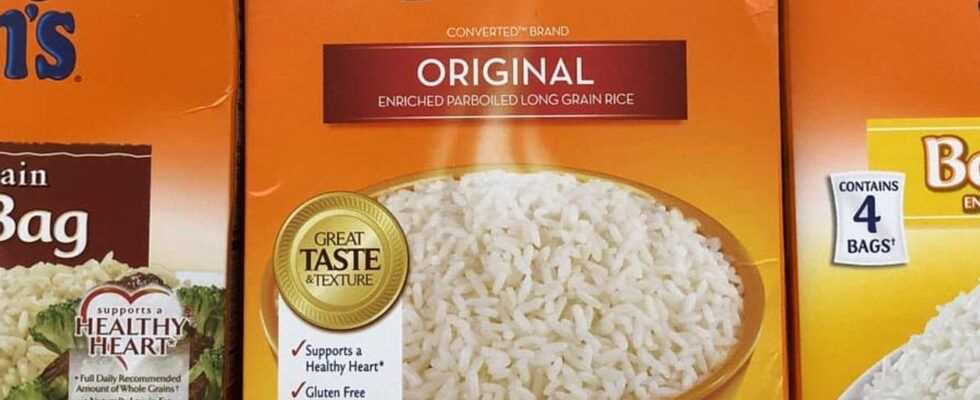It was a request of the Black Lives Matter movement and it was finally heard: the brand Uncle Ben's has just announced that it is changing its name, which was based on a racist stereotype. Explanations.
In the cupboards of your kitchen, you will probably find the famous rice orange Uncle ben's, an institution of mass distribution. The brand has been present all over the world, since its creation in 1943 in the United States. A time when racial segregation, that is to say the separation between whites and blacks, was still relevant in the country … And it shows on the package, which represents a smiling African American, originally inspired by a Chicago butler. But what is the problem? First of all, this good-natured character conforms to a stereotypical vision of the old black man, necessarily servile and smiling, and who could well work in a rice plantation where slaves were exploited. On the other hand, the term "Uncle" ("uncle"), as well as "Aunt" (aunt), were used in segregation to refer to the elderly non-white, in a paternalistic and condescending way. In the famous work "Uncle Tom's Cabin", Harriet Becher Stowe, the old slave devoted and faithful to his white master, is moreover given the title of "uncle". It therefore seems incredible that a brand could have used this stereotype to sell its products.
When Black Lives Matter challenges brands
Among other struggles, the movement Black Live Matters (launched in 2013 and reactivated in 2020 by the murder of George Floyd) has shed light on the racist stereotypes conveyed by many US brands. Notably, Aunt Jemima, famous for its syrup and pancake mixes. Its manufacturer had announced to change the name in June 2020, in the face of legitimate criticism. At the same time, Uncle ben's had stated his desire to change his name, without giving a new version. It is now done.
Exit, therefore, the “Uncle” and the face of the old butler. The package will simply keep the original orange color. Fiona Dawson, global president of Mars Food, the group that owns the brand, specifying: "We understand the inequalities associated with the name and face of the previous brand". The brand is expected to change its logo by the end of 2020, and sets an example for other agri-food groups. Especially French …
What if we renamed the Banania?
France is not exempt from brands perpetuating racist stereotypes. If the brand of Bamboula cakes, represented by a small black child in a leopard loincloth, has disappeared, the brand of powdered chocolate Banania is still under fire from critics. His image is indeed that of a Senegalese tirailleur, born in 1915 under the pencil of illustrator Giacomo de Andreis and since modernized. But the image is still based on racist stereotypes: the exaggerated contrast between the whites of the eyes and the teeth and the black skin, the exaggerated smile of a soldier who is always happy because a little simple, an operetta uniform … And if the slogan "Y'a bon" was finally abandoned after a court decision initiated by the Movement against Racism and for Friendship between Peoples, there is still work to be done so that the brand no longer conveys any shocking clichés. We impatiently await the dusting of the small dej 'department …
